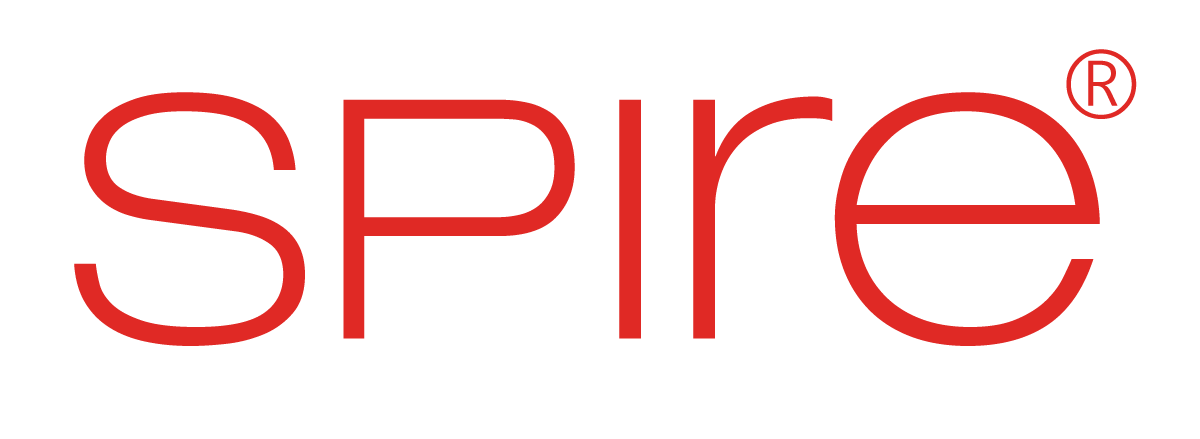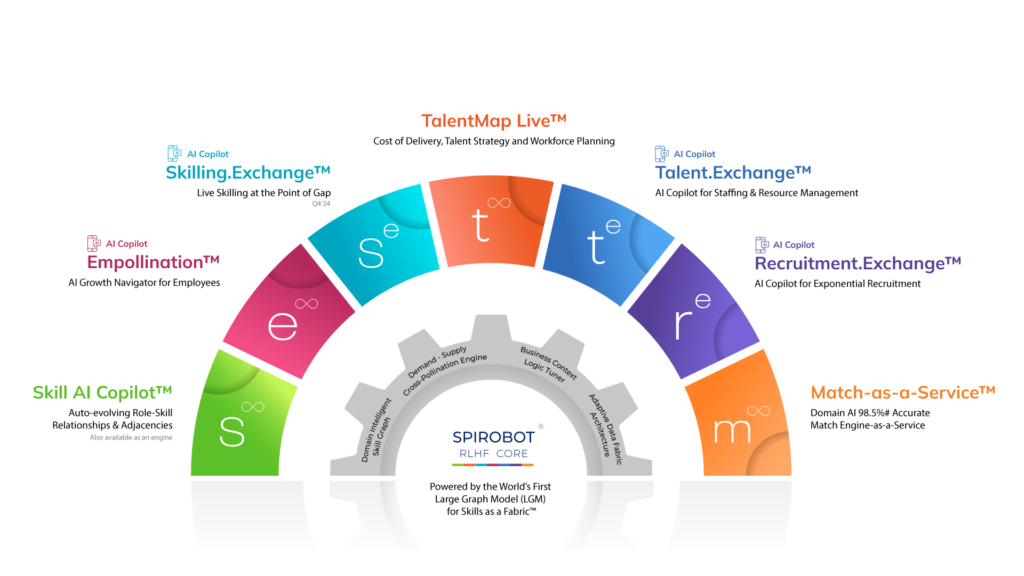The professional services organizations (PSO) sector thrives on skill expertise, human capital, and the ability to provide tailored solutions to clients. The industry spans various fields like consulting, legal services, financial advisory, and IT services, each requiring technical expertise and a deep understanding of industry-specific challenges and client needs. As clients’ expectations become increasingly complex and project scopes more dynamic, they must foster continuous growth within their workforce to stay competitive. The challenge lies in developing technical expertise and ensuring employees have the skills, industry knowledge, and agility to adapt to ever-changing client needs.
Unlike generic AI models, which are built to address broad tasks and often lack the granularity required to understand complex professional services environments, domain-intelligent AI is designed to handle the industry’s unique requirements. It leverages deep data analytics, industry-specific insights, and real-time employee skill data to transform employee development into a strategic, data-driven function.
Domain-Intelligent solutions can go beyond traditional training programs by creating dynamic, employee-specific growth paths, identifying critical skill gaps in real time, and optimizing employee development to align with current client demands and future business goals.
In a landscape where client relationships, project delivery, and subject matter expertise define success, here are five ways domain-intelligent AI is revolutionizing how PSOs nurture, retain, and evolve their talent pools
1. AI-Driven Skills Gap Analysis
In the professional services industry, where projects are complex, time-sensitive, and expertise-driven, understanding skill gaps is critical—it’s the foundation for staying competitive. Effective resource management and project delivery hinge on the alignment between an employee’s skill set and the unique demands of client engagements. This process enables companies to identify areas where employees may need further training or new skills to meet future business demands.
Traditional skill assessment methods often fail to capture the subtle yet critical discrepancies between an employee’s current abilities and the specific requirements for upcoming projects.
Manual skill assessments are time-consuming, error-prone, and rarely provide the real-time insights needed to make data-driven decisions.
Traditional skill assessment methods often fail to capture the subtle yet critical discrepancies between an employee’s current abilities and the specific requirements for upcoming projects.
Manual skill assessments are time-consuming, error-prone, and rarely provide the real-time insights needed to make data-driven decisions.
For PSOs, identifying skill gaps is far more complex than simply evaluating employees based on performance reviews or fundamental competency checklists. The industry requires expertise in niche areas, whether financial services compliance, advanced IT systems, or legal regulations. Traditional skill assessment methods often fail to capture the subtle yet critical discrepancies between an employee’s current abilities and the specific requirements for upcoming projects. Moreover, manual skill assessments are time-consuming, error-prone, and rarely provide the real-time insights needed to make data-driven decisions.
Spire.AI disrupts these limitations by leveraging its Large Graph Model (LGM) for Skills and domain-specific intelligence to conduct continuous, real-time skills gap analysis. Rather than relying on periodic evaluations, Spire.AI’s system integrates performance data, project outcomes, client feedback, and market trends to create comprehensive employee skill profiles and assess employees’ skills in real time. This ensures that organizations can pinpoint current gaps for every employee and predict future needs based on clients’ evolving demands and industry shifts. Our Domain AI-powered employee development software does more than identify who is underperforming; it strategically aligns employee capabilities with both immediate and long-term organizational objectives.
2. Personalized Employee Development Plans
One of the most significant advancements in employee development for PSOs is the creation of hyper-personalized development plans at scale. Domain-intelligent AI enables organizations to tailor employee development plans based on individual skills, strengths, weaknesses, and career aspirations. By analyzing vast data, domain-intelligent AI can recommend the most effective learning resources and training programs to support employees’ unique growth journeys.
Domain-intelligent employee development software suggests reskilling programs for employees who want to transition into a new role or identifies leadership training opportunities for high-potential team members. Companies can foster a more engaged and capable workforce by aligning development plans with organizational goals and personal aspirations.
Spire.AI’s system integrates performance data, project outcomes, client feedback, and market trends to create comprehensive employee skill profiles and assess employees’ skills in real time.
This ensures that organizations can pinpoint current gaps for every employee and predict future needs based on clients’ evolving demands and industry shifts.
Employee Development Plan Example
When it comes to domain-intelligent AI in employee development, Spire.AI stands at the forefront of innovation. Spire.AI’s deep understanding of the professional services industry allows it to create hyper-personalized, scalable, and dynamic development plans that align with individual career goals and organizational needs. Unlike traditional employee development software, which often provides generic, one-size-fits-all training programs, Spire.AI leverages domain-specific intelligence to deliver a nuanced and detailed approach to nurturing talent.
Imagine a scenario where a junior consultant at a professional services firm aims to transition to a senior consultant role. Spire.AI EmpollinationTM, develops a custom employee development plan that is not just based on typical role progression but tailored to the specific projects, clients, and skills most valuable within that firm’s domain. Spire.AI’s domain-intelligent system analyzes employee skill data, past performances, projects, specializations, and similar progression data across the industry to recommend skill-building activities aligned with the consultant’s current projects and future aspirations.
For instance, if the consultant is working on a high-stakes digital transformation project for a healthcare client, Spire.AI EmpollinationTM could identify gaps in skills, such as data analytics or healthcare IT systems. The system would then suggest targeted training programs, including advanced courses in healthcare technology, simulation exercises in project management, and perhaps a mentorship program with a senior consultant who has led similar projects.
3. Automating Employee Growth Tracking and Feedback
In professional services organizations (PSOs), where the success of client projects heavily depends on the expertise and continuous development of employees, tracking and enhancing employee growth is critical.
However, traditional methods of evaluating performance and providing feedback are often time-consuming, subjective, and disconnected from the industry’s fast-paced needs. This is where domain-intelligent AI transforms how PSOs approach growth tracking and feedback.
Domain-intelligent AI solutions are designed to meet the unique demands of industries like professional services, where the nuances of project delivery, client interaction, and specialized skills must be deeply understood. By leveraging real-time employee skill data, domain-intelligent AI systems continuously track employees’ performance across various dimensions—project outcomes, client feedback, technical proficiency, and skill development—creating a comprehensive picture of each individual’s growth trajectory.
Unlike generic AI models, domain-intelligent AI systems are adept at analyzing data in the context of specific industries. In PSOs, tracking employees’ technical skills and understanding how effectively they manage client relationships, collaborate on cross-functional teams, or adapt to changing regulatory environments. These insights allow managers to provide more frequent and objective feedback, helping employees adjust and improve their real-time performance.
Unlike generic AI models, domain-intelligent AI systems are adept at analyzing data in the context of specific industries.
In PSOs, tracking employees’ technical skills and understanding how effectively they manage client relationships, collaborate on cross-functional teams, or adapt to changing regulatory environments.
Spire.AI takes this to the next level with its deep integration into the specific requirements of professional services organizations (PSOs). Spire.AI is not just another AI-powered solution; it is designed with the intricacies of PSOs in mind, offering a tailored approach to tracking and nurturing employee growth in this highly specialized industry.
For managers, Spire.AI is an indispensable tool for employee development. Its real-time tracking capabilities offer managers a comprehensive view of each employee’s strengths, weaknesses, and progress. Managers can provide more meaningful, data-backed guidance during performance reviews and developmental discussions. With Spire.AI, managers can see exactly how employees contribute to project success, where they need additional support, and what steps they should take to continue growing within the organization.
For instance, a manager overseeing multiple client-facing teams can use Spire.AI to identify which employees excel in client communication but may need more technical training to meet upcoming project requirements. With this information, the manager can adjust project assignments, recommend targeted learning opportunities, or create customized development plans for each team member. This level of insight enhances employee growth and optimizes resource allocation, ensuring that the right employees are placed on suitable projects at the right time.
4. Real-Time, Adaptive Learning Paths
Domain-intelligent AI systems are trained with deep knowledge of the industry they serve, which gives them a unique advantage when designing learning paths. These advanced AI systems analyze performance data within the specific context of the professional services sector, meaning they understand the intricacies of client-facing roles, regulatory compliance, and project management critical to success in this field. By analyzing real-time job performance data and comparing it with industry benchmarks, domain-intelligent AI can automatically adjust learning paths to focus on areas where employees need to grow the most.
By analyzing real-time job performance data and comparing it with industry benchmarks, domain-intelligent AI can automatically adjust learning paths to focus on areas where employees need to grow the most.
For example, a consultancy firm working on digital transformation projects might require its consultants to stay updated on emerging technologies and the specialized skills needed to manage client requirements. A domain-intelligent AI can track the consultant’s performance in real-time—whether it’s handling a client’s needs or implementing a new cloud-based solution—and then recommend learning modules specific to their immediate needs. If the domain-intelligent solutions identify a gap in the consultant’s ability to handle the technical aspects of the project, it may recommend advanced courses in cloud infrastructure. On the other hand, if the consultant struggles with managing client expectations, it could suggest training in communication or client management strategies.
What makes these adaptive learning paths powerful is their ability to evolve as the employee progresses. If the consultant quickly masters a particular skill set, the AI adjusts by offering new, more advanced training opportunities. Conversely, if an employee struggles in a specific area, the system can provide additional resources, such as one-on-one coaching, to overcome challenges. This dynamic, real-time approach ensures that training is not just a check-the-box exercise but a continuous, evolving process that responds to employee performance and industry shifts.
Spire.AI domain-intelligent AI revolutionizes learning by providing hyper-personalized, adaptive learning paths that address skill gaps and align with employees’ career trajectories, aspirations, and the organization’s long-term vision. Spire.AI’s platform builds learning paths based on a comprehensive analysis of real-time performance data, individual career goals, and the organization’s evolving needs.
Spire.AI’s adaptability is what truly sets it apart. As market conditions shift or the organization’s strategic focus changes, Spire.AI continuously updates the learning paths to reflect these new priorities. Suppose the organization decides to pivot towards providing more digital consulting services. In that case, Spire.AI will adjust employee development plans accordingly, offering training modules in areas like digital strategy, data analytics, or cloud computing. This ensures that employees are always aligned with the organization’s evolving vision and are prepared to tackle the challenges posed by emerging industry trends.
5. Enhanced Succession Planning and Leadership Development
Effective employee development requires nurturing the current workforce and preparing future leaders. Domain-intelligent AI significantly enhances succession planning by identifying high-potential employees and providing a clear roadmap for their leadership development. These domain-intelligent systems can analyze historical performance data, assess leadership competencies, and simulate potential future scenarios to forecast which employees are best suited for executive roles.
Leadership development programs, bolstered by AI, ensure that organizations always have a pipeline of ready-to-lead talent. This proactive approach reduces the risk of leadership gaps, allowing PSOs to maintain stability and continuity during transition periods.
Example of Leadership Development
A consulting firm looking to develop its next generation of leaders might use domain-intelligent AI to evaluate mid-level managers’ skill proficiency, decision-making abilities, and client management skills. This advanced AI system can recommend specific employee development plan examples focused on executive skill development, team-building exercises, and strategic thinking courses. By following these tailored recommendations, employees can better prepare for leadership roles, ensuring a smooth succession when the time comes.
Conclusion: The Future of Employee Development with Domain-Intelligent AI
The role of domain-intelligent AI in professional services is no longer just about optimizing current operations—it’s about shaping the future of work itself. As industries evolve, the need for continuous learning and agile talent management has never been more crucial. AI-driven tools, particularly those with domain-specific intelligence like Spire.AI, set a new standard for how organizations approach employee development. By offering real-time, personalized, and adaptive learning paths, these tools ensure that employees meet today’s demands and are prepared for tomorrow’s challenges and opportunities.
What truly excites industry leaders about the potential of domain-intelligent AI is its ability to fundamentally change how work is structured, how talent is nurtured, and how organizations grow. The future of work is poised to be more dynamic, with domain-intelligent AI serving as a strategic partner in creating agile, adaptable workforces. The traditional, static approaches to employee development will be replaced by continuous, data-driven processes that allow organizations to respond swiftly to market changes, client needs, and technological advancements.
Here’s where the possibilities for the future of work get truly exciting:
- Hyper-Personalized Career Development: With domain-intelligent solutions driving employee growth, career development becomes uniquely tailored to each individual’s strengths, aspirations, and evolving job market conditions. Instead of a one-size-fits-all approach, employees can engage in personalized learning experiences that guide them through specific career paths, ensuring they are always positioned for the next big opportunity.
- Predictive Talent Management: One of the most powerful aspects of domain-intelligent AI is its predictive capabilities. It can foresee future skills gaps based on industry trends, client needs, and organizational growth strategies. By identifying the skills that will be in demand tomorrow, organizations can proactively reskill or upskill their workforce, creating a continuous loop of development that aligns with future business goals.
- Enhanced Workforce Agility: As the future of work becomes increasingly project-based and decentralized, workforce agility will be key. Domain-intelligent AI enables organizations to pivot quickly by identifying talent for the right projects, ensuring optimal resource allocation. Real-time insights will empower PSOs to reallocate resources dynamically, ensuring that teams are always aligned with the most pressing client needs and market opportunities.
- Democratized Learning and Opportunity: Platforms like Spire.AI democratize access to growth opportunities within organizations. Employees can take control of their development by engaging in self-paced learning and leveraging domain-specific recommendations for projects and training that align with their personal goals.
- AI-Augmented Decision-Making: In the future of work, domain-intelligent AI will significantly augment decision-making processes. Managers can access data-driven insights that help them make informed decisions about talent allocation, promotions, and team structures. This allows for more strategic and accurate resource planning, improving overall business outcomes.
- Human-AI Collaboration: Perhaps the most exciting aspect of the future of work is the deep collaboration between humans and AI. Domain-intelligent AI systems, like Spire.AI, will complement human intuition and decision-making by providing data-backed recommendations. This partnership allows organizations to leverage the best of both worlds—human creativity and AI precision—fostering innovation and driving sustainable growth.
As domain-intelligent AI evolves, it will unlock even more possibilities for how organizations manage talent, develop skills, and structure work. Integrating AI-driven solutions in employee development is more than a technological upgrade—it is a shift toward a more agile, responsive, and future-ready workforce. For professional services organizations (PSOs), this means surviving and thriving in an increasingly competitive landscape.






